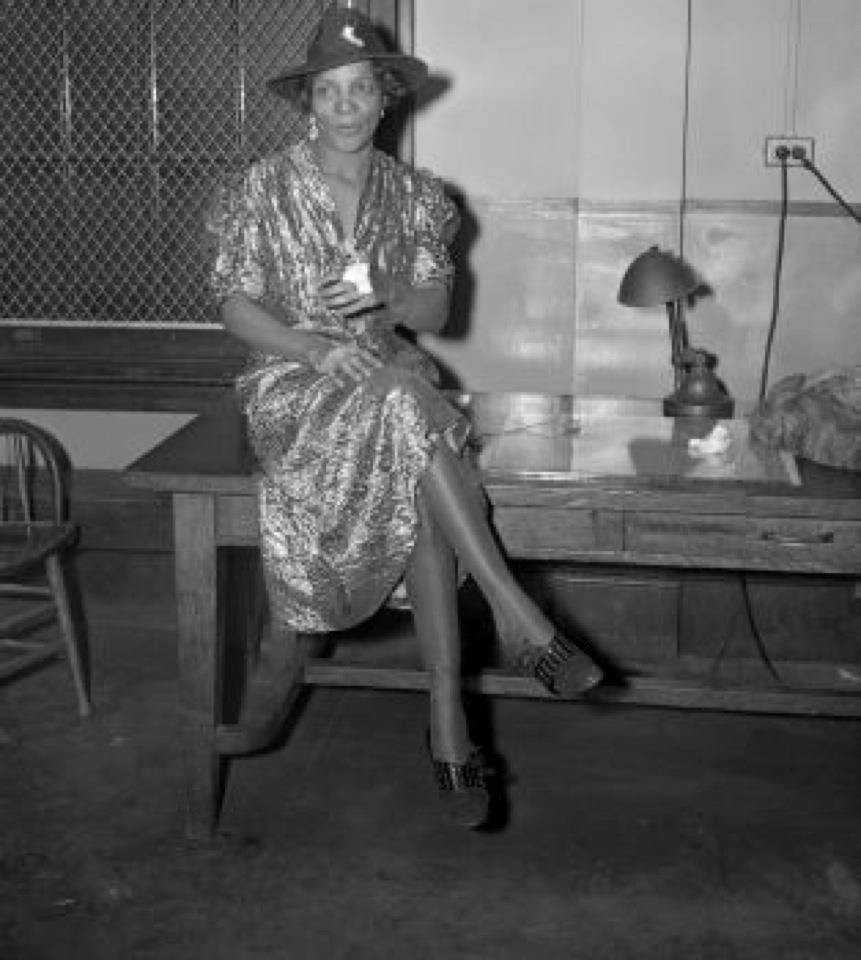 Stephanie St. Clair, 1886 – 1969, was a bookmaker in Harlem. Madam St. Clair was born of mixed French and African descent on Martinique.
Stephanie St. Clair, 1886 – 1969, was a bookmaker in Harlem. Madam St. Clair was born of mixed French and African descent on Martinique.
She immigrated to the United States via Marseilles in 1912 and ten years later took $10,000 of her own money and set up a numbers bank in Harlem.
She became known throughout Manhattan as Queenie, but Harlem residents respectfully referred to her as Madame St. Clair. She became affiliated with the 40 Thieves gang, but she eventually branched off on her own and ran one of the leading numbers games in the city.
She complained to local authorities about harassment by the NYPD, and when they paid no heed she ran advertisements in Harlem newspapers, accusing senior police officers of corruption. The police responded by arresting her on a trumped up charge, and in response she testified to the Seabury Commission about the kickbacks she had paid them. The Commission subsequently fired more than a dozen police officers.
After the end of Prohibition, Jewish and Italian-American crime families saw a decrease in profits and decided to move in on the Harlem gambling scene. Bronx-based mob boss Dutch Schultz was the first to move in, beating and killing numbers operators who would not pay him protection.
St. Clair and her chief enforcer Ellsworth “Bumpy” Johnson refused to pay protection to Schultz, but the wave of violence and intimidation began wearing them down. Eventually, however, “Bumpy” Johnson approached Lucky Luciano. He negotiated himself into the position of enforcing the will of the Five Families by supervising and shaking down Harlem’s black lotteries and bookmakers. He also approached St. Clair and tried to persuade her to come with him. She at first refused, but Johnson continued doing his best to protect his former boss. However, both eventually realized that the struggle was hurting business, and collaborated to arrange a truce with Schultz. She was allowed to operate so long as she continued paying the “Family Tax” to the Italians.
In 1935, Schultz was assassinated on the orders of The Commission. He lingered delirious for a few days. St. Clair had nothing to do with his murder, but sent a telegram to his hospital bed. It read, “As ye sow, so shall ye reap.” This incident made headlines across the nation.
St. Clair was portrayed by Novella Nelson in the 1984 film The Cotton Club, by Cicely Tyson in the 1997 film Hoodlum and by Fulani Haynes in Katherine Butler Jones’ 2007 play 409 Edgecombe Ave, The House on Sugar Hill. Source
Become a Harlem Insider!
By submitting this form, you are consenting to receive marketing emails from: Harlem World Magazine, 2521 1/2 west 42nd street, Los Angeles, CA, 90008, https://www.harlemworldmagazine.com. You can revoke your consent to receive emails at any time by using the SafeUnsubscribe® link, found at the bottom of every email. Emails are serviced by Constant Contact








